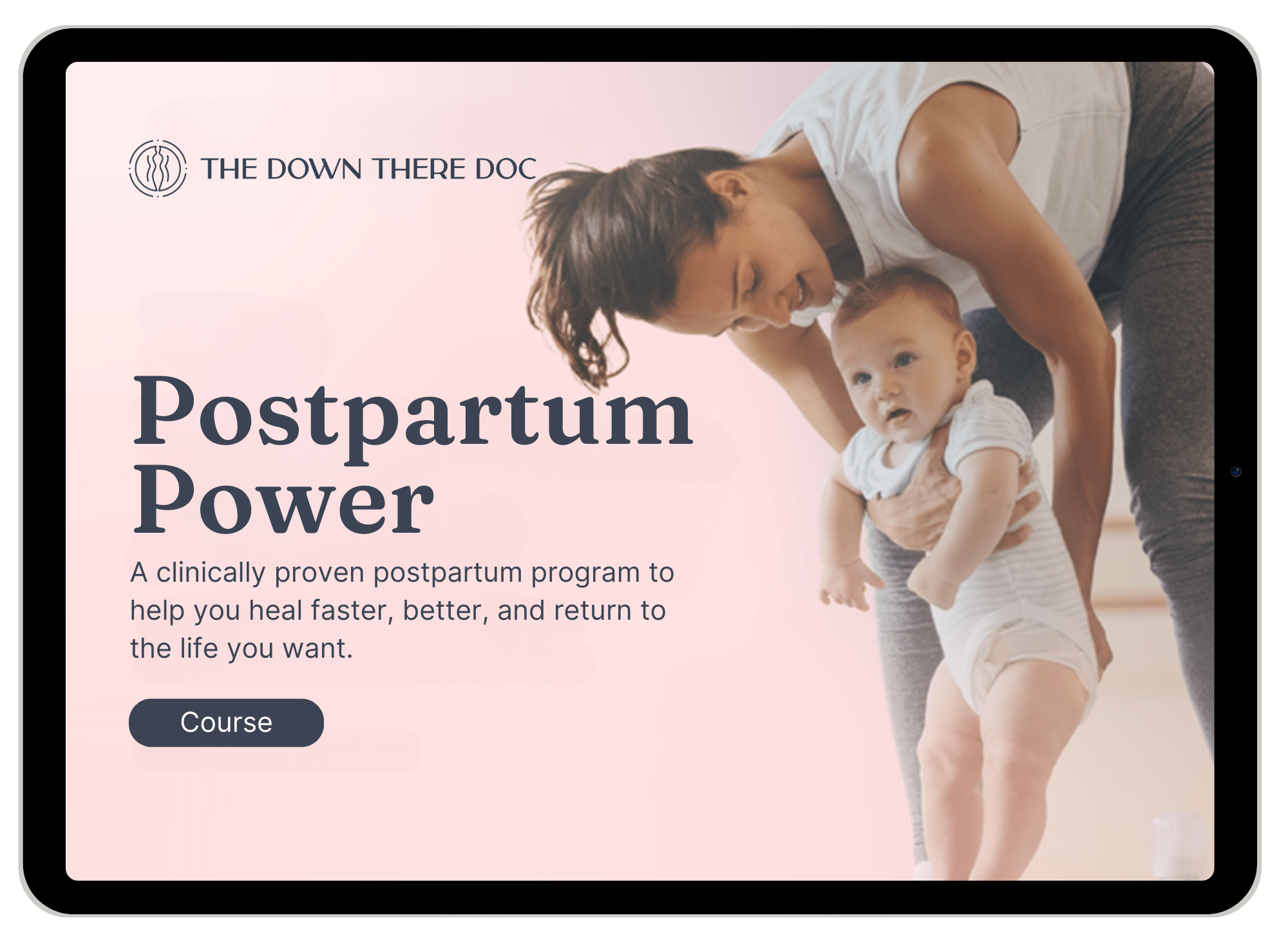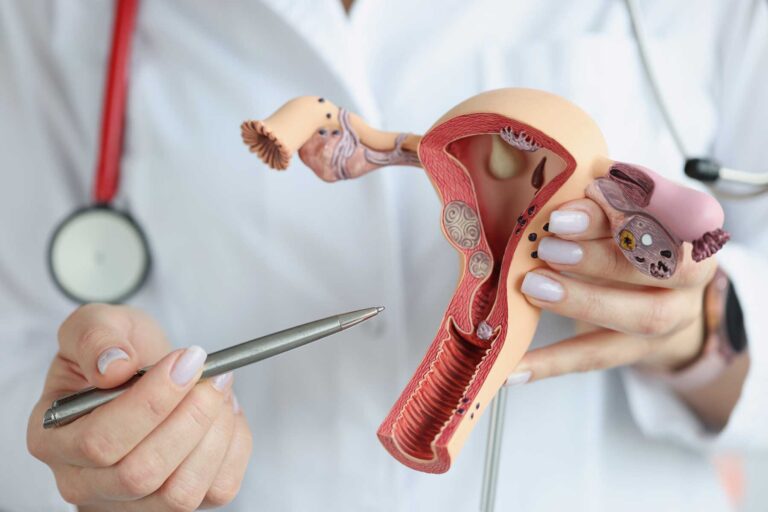3 Reasons Sex Can Be Painful After Childbirth
Trauma
Having a baby can be traumatic. If there is any tearing in the perineum or vagina, use of forceps or vacuum, or even intense pushing phases, the tissue and muscles can be affected.
Scar tissue can form, nerves can be stretched or irritated, and healing can be delayed—these can all be causes of trauma.
This is relevant for sex because those same tissues need to be able to expand and move in order to allow penetration. If there is an immobile scar or an irritated nerve there, that will cause pain.
See Also

Postpartum Power
Hormones
After having a baby, our estrogen drops significantly, especially when we are breastfeeding or pumping.
The tissues around the vaginal opening and perineum, and inside the vagina are very estrogen “dependent,” which means the tissues THRIVE when lots of estrogen is present.
Without this hormone, the vagina and vulva become dry, less robust, thinner, pale, and are more likely to tear or cause pain/discomfort during sex or vaginal penetration.
Pelvic floor issues
After pregnancy, the pelvic floor can become too tight or short which may cause muscle tension or spasms to develop.
This is caused by doing too much activity, performing Kegel’s incorrectly, or not training the muscle to lengthen or release after strengthening.
This can happen due to the muscles having to work very hard during pregnancy. It’s similar to a shin splint or overuse injury. If there’s additional trauma or pain on top of that, those muscles will “guard” or contract to protect that sensitive area.
What you can do on your own to improve your experience
There are 3 things you can do to improve your experience and alleviate pain and discomfort:
- Use a good quality water-based lubricant. My top two faves are Coconu and Good Clean Love, use discount code: THEDOWNTHEREDOC
- Moisturize the outside with a vulvar-friendly balm. (I like Vital Vulva Wild Yam Salve or Aquaphor)
- Learn how to correctly massage any scars and decrease pelvic floor spasm/tightness. (Enroll in Postpartum Pelvic Floor Power for step-by-step guidance on this!)
** Check out my free resource How to Have Pain-Free Postpartum Intimacy for more info on lubes, positions to start with, and aftercare
When is physical therapy necessary?
Before and immediately after baby arrives—internal work can start at 6-8 weeks post-birth. You can and should begin healing and recovering RIGHT AWAY to decrease the severity of longer-term issues and shorten your recovery time.
Physical Therapy is appropriate any time, you don’t have to suffer—even if your doctor tells you that it doesn’t work or not to bother if you’re planning to have another baby. Take control of your healing journey!
How Pelvic Floor Physical Therapy Can Help
1 in 4 women experiences issues due to a poorly functioning pelvic floor. Leaking urine while exercising, laughing, coughing, sneezing; painful intercourse or vaginal penetration, pelvic organ prolapse, abdominal or core weakness, and even back pain.
All of these are common but NOT normal. When we talk about a “healthy pelvic floor” we need to make sure that the muscles are not only strong, but they need to be solid and long, versus weak and tight.
Physical therapy can help with all the above issues. But all 3 reasons why sex is painful after baby must be addressed, not just one or the other.
Physical therapy can also help with skin care, muscle problems, nerve sensitivity from trauma, and scar tissue mobilization (scars need to be able to move! Did you know that?).
Once everything is healed and moving correctly then we can help strengthen and rehab! There’s no sense in doing exercises that make your muscles shorter and tighter (ahem Kegels) if they are already in spasm.
We can do this!
If you’ve had or are currently experiencing painful intercourse, there’s hope for a normal sex experience again. By taking special care to do your healing through using the right products, massaging scars, and participating in physical therapy; you can heal your body and help your future self!
Visit TheDownThereDoc.com for more helpful resources!







